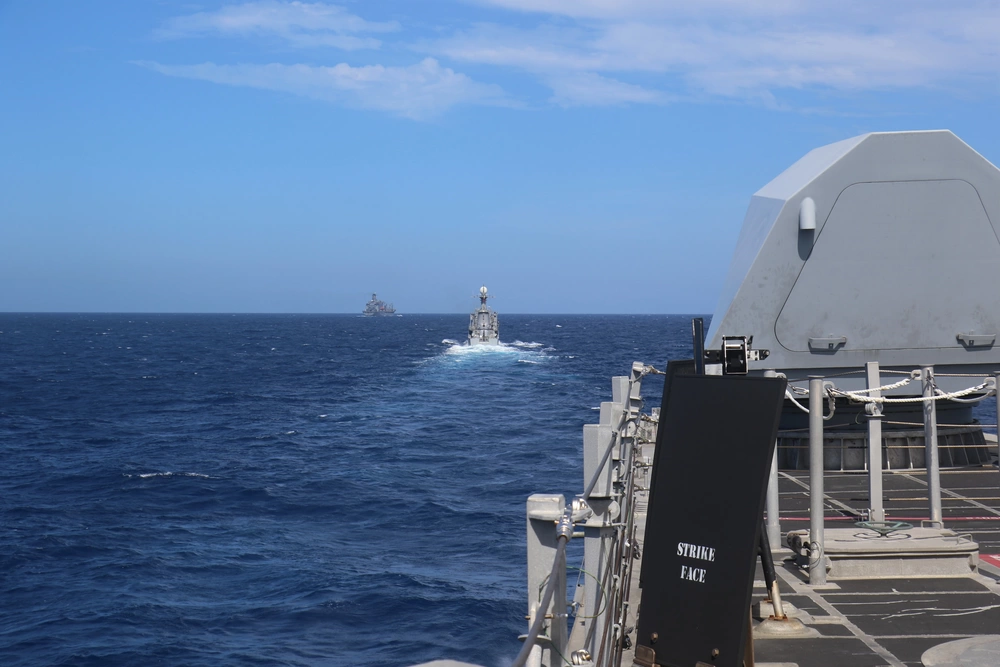US, EU still wary of continued Chinese aggression despite de-escalation efforts
By Joseph Pedrajas and Joseph Pedrajas
The United States and the European Union have welcomed the Philippines’ and China’s efforts to de-escalate tension in the South China Sea but expressed concern about Beijing’s continued aggression despite such a move.

US State Department Deputy Secretary Kurt Campbell and European External Action Service (EEAS) Secretary General Stefano Sannino expressed Washington and the regional bloc’s joint stand over the South China Sea issue as they met in Brussels from Sept. 9 to 10 for the Dialogue on China and Indo-Pacific Consultations.
“Both sides expressed serious concern about tensions in the East and South China Seas and reiterated their strong opposition to recent actions by China that endanger the safety of life at sea and infringe upon freedom of navigation,” their joint statement read.
“The two sides welcomed diplomatic efforts between the PRC (People’s Republic of China( and the Philippines, yet remained concerned about China’s dangerous and escalatory actions against lawful Philippines aerial and maritime operations in the South China Sea.,” it added.
The officials also recalled the June 14 Group of Seven Leaders’ statement, which reaffirmed that there is no legal basis for China’s expansive maritime claims in the South China Sea.
In June, the G7 countries called out China for its “increasing use” of dangerous maneuvers and actions against the Philippines, tagging it as “intimidation.”
They even emphasized the universal and unified character of the United Nations Convention on the Law of the Sea (UNCLOS) and the vital importance of all states remaining free to exercise their rights and freedoms consistent with this international legal framework.
Campbell and Sannino said that the Arbitral Tribunal award in 2016 is legally binding upon the parties to those proceedings, and forms a useful basis for peacefully resolving disputes between the parties.
“The United States and the European Union expressed their strong commitment to upholding peace, stability and international law in the region,” their statement added.
On the other hand, Campbell and Sannino discussed their respective engagement and partnerships across the region.
They reaffirmed the importance of the US and EU’s combined initiatives on regional connectivity, notably in the framework of the Partnership for Global Infrastructure and Investment (PGI) and the EU’s Global Gateway.
Regarding the Philippines, they discussed the US Smart and Secure Ports Program and EU Global Ports Safety Project, both supporting Indo-Pacific partners with port modernization, security, and safety, as well as their complementary programming to promote digital connectivity infrastructure and modernization in the country.
On Wednesday, the Philippines and China engaged in a high-level talks to manage disputes as tension also started escalating in the waters off Escoda Shoal.
The talks came after after a month of China's successive aggression in the West Philippine Sea.
The month of August witnessed one of the most, if not the most, number of times that China made aggressive action against the Philippines in the West Philippine Sea by ramming the latter's ships, making dangerous maneuvers and firing off flares into the routh of a Philippine Navy aircraft.